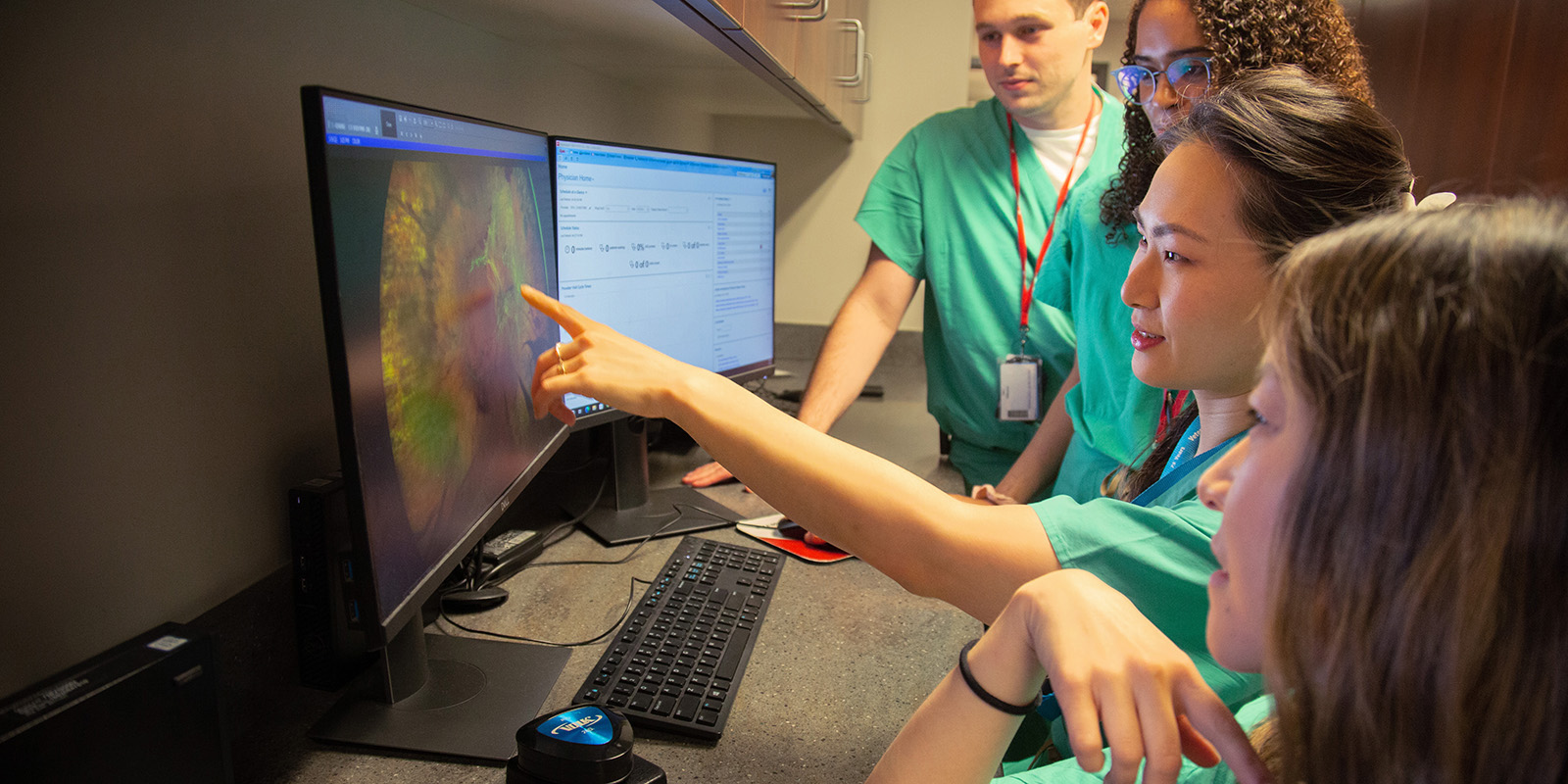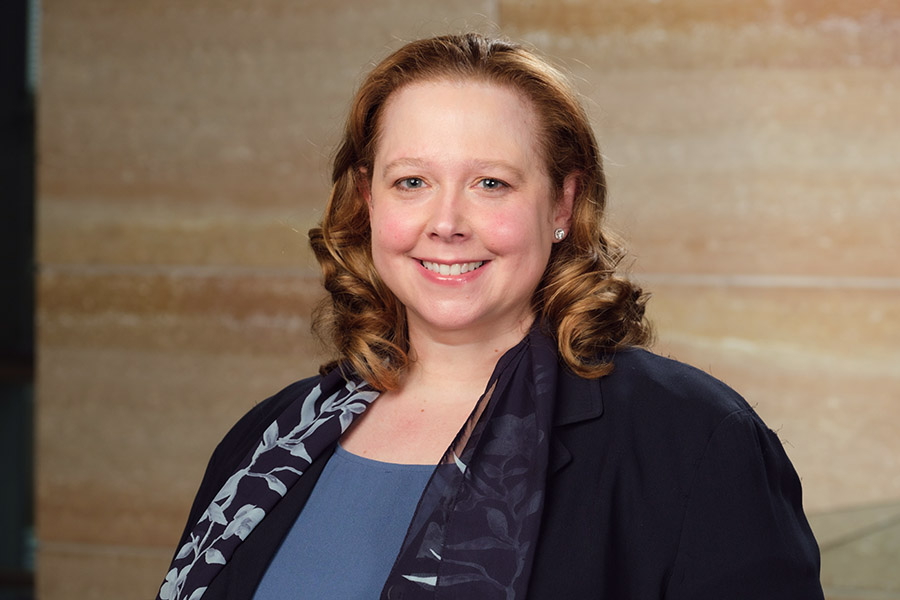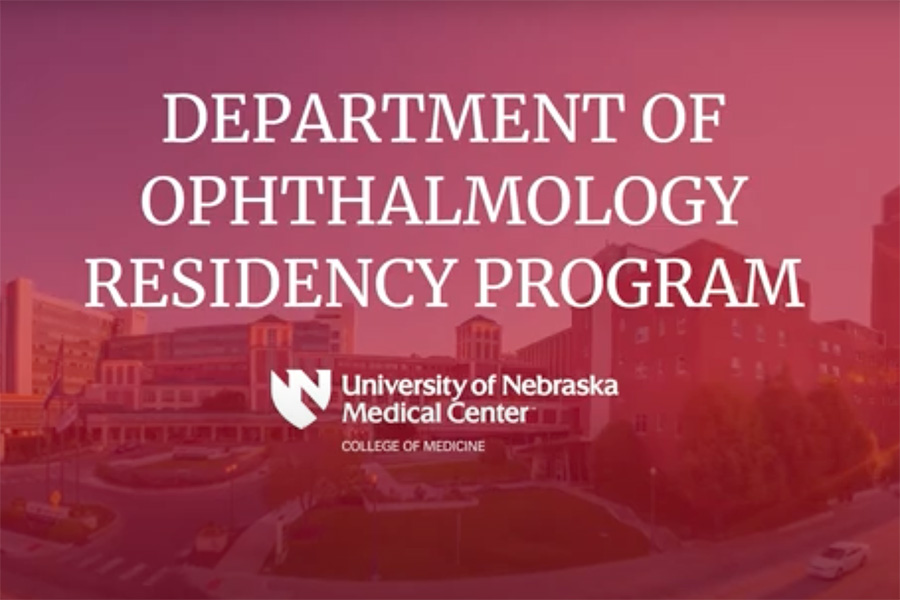
Residency Program
We have one simple goal: to provide premier ophthalmic clinical and surgical training to our residents.
Our faculty and the residency program leadership team are focused on inspiring residents to get the most from their training and provide the highest levels of quality in patient care and surgical outcomes. We also provide an array of educational support and mentorship for residents interested in pursuing careers as clinician-scientists, including many opportunities to collaborate on research studies with our great Vision Science Research team. With our small class size, residents have the opportunity to work individually with each faculty member, in addition to a mentor of their choosing.
From the Director
While training at UNMC, residents work closely with our board-certified subspecialty ophthalmologists to manage routine and complex tertiary level cases within the state-of-the-art facilities at the Truhlsen Eye Institute. Residents are thoroughly trained in the clinical evaluation of patients, interpretation of specialized ancillary testing, diagnosis, and medical and surgical management of all types of ophthalmic pathology with the goal of producing local, regional, national, and international leaders in ophthalmology. We invite you to apply to our residency training program, and we hope to foster your training and future career in ophthalmology!

Shannon Lynch, MD, Ophthalmology Residency Program Director
